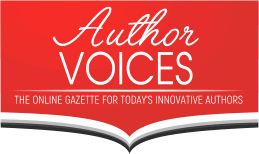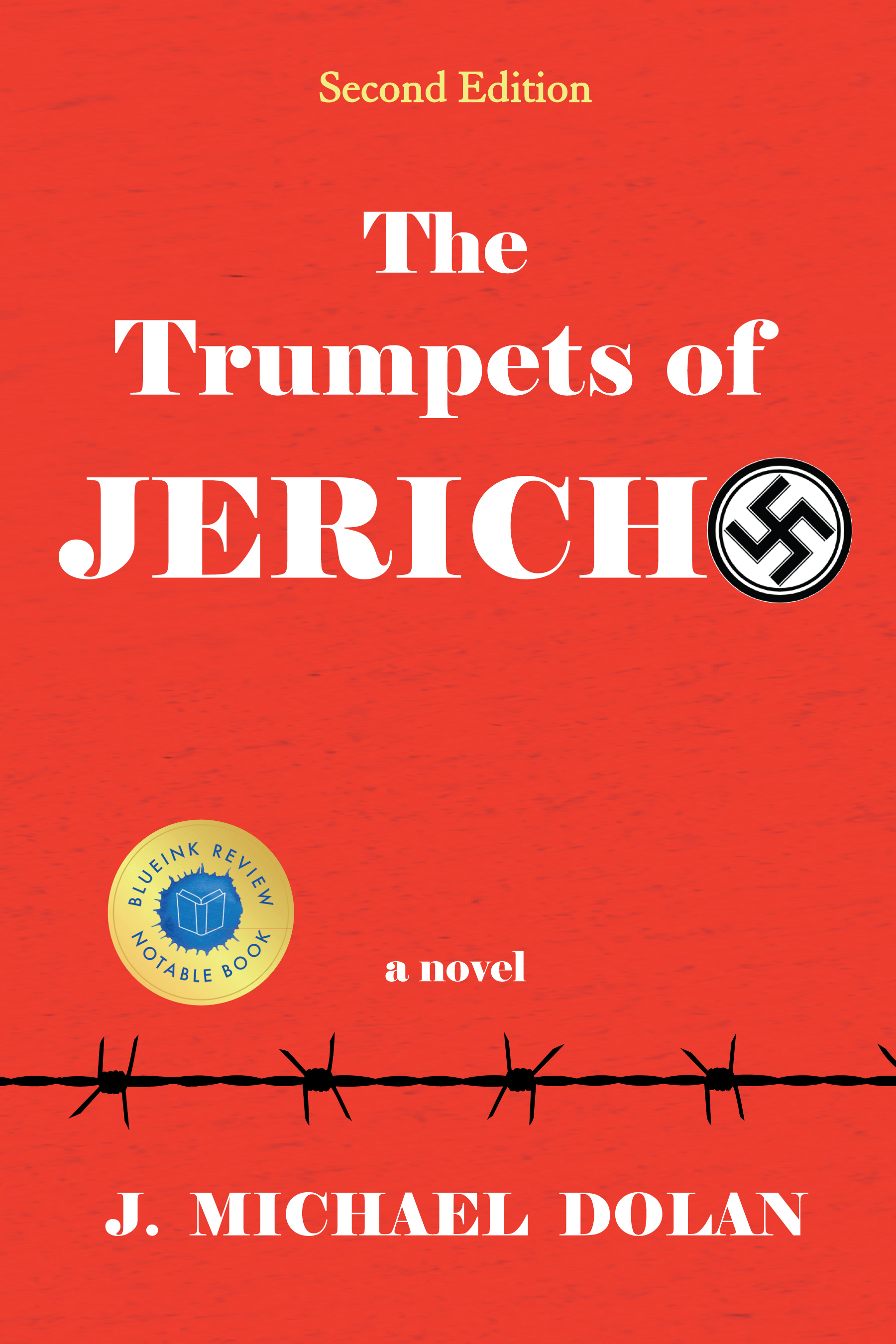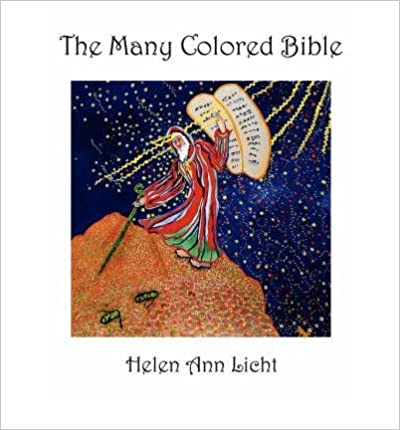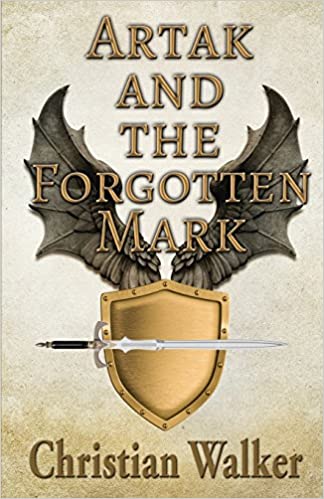Interview with John Michael Dolan
Author of The Trumpets of Jericho: a novel
Where are you from originally and where do you reside now?
I was born in San Diego CA, live now deep in cattle country 50 miles outside of Austin TX. No loud neighbors, no traffic, no street lamps, no sirens–just “green silence and solitude” to quote from a favorite movie, and a night sky so black I can see every star.
If you currently reside somewhere besides where you were born, what’s the story that lead from there to here?
A long story made short: grew up in Houston TX, when of age sought to broaden my horizons. Have called Hawaii, Mexico, the U.S. and British Virgin Islands home (love the trade winds); Canada, Manhattan, New Jersey (hate the snow); and New Orleans twice.
Moved to BFE (where I am now, you baby-boomers will recognize the acronym) to be near what family I have left and write the books I was put on Earth to write.
What made you decide to write and publish your first book?
I was a bartender for 33 misspent years. Worked every kind of bar there is but for a lesbian one (duh). I kept telling myself I was a writer, kept dabbling at it, had a very few very minor pieces published, never gave up the dream–but I was kidding myself. The dissolute lifestyle I was leading was in no way conducive to me being a writer, not a serious one anyway.
I was always for some reason drawn to the Holocaust, even as a child. So one day several years ago I’m roaming the impressive Holocaust Museum Houston when I come upon a traveling exhibit with the fiery, young Jewish heroine Roza Robota as its centerpiece. As much as I knew about the years 1933-1945–all the books I’d read, films I’d seen–to my embarrassment I’d never heard of Roza, nor even worse, the event that made her famous, the defiant 1944 Jewish armed uprising at the Nazi death camp Auschwitz.
Intrigued, I decided to look further into this remarkable story, with the goal of tracking down a book or two on it. Intrigue quickly gave way to surprise, however–no, shock!–when I discovered there WAS no book, only scattered and disturbingly contradictory references to what in my eyes was one of the more dramatic, true-life tales to come out of that dark chapter in history.
Talk about epiphanies…BAM! There it was, dumped ker-splat in my lap: yours truly would be the one to write that book. After a year of researching it, I dropped bartending like a hot potato, liquidated my assets, fled the city and its distractions, and 5 years later had The Trumpets of Jericho: A Novel to my credit. Where it remains the only book-length account of the lone prisoner rebellion in the short but blood-drenched existence of the horror camp Auschwitz.
How would you describe your books to first time readers?
The book they’ve waited for all their lives! A work that out-Shakespeare’s Shakespeare! An effort destined to change the course of literary history!!!
Okay, Michael…enough. Back to Planet Reality. As noted in the previous answer, TTOJ is a novel; traditionalist historical fiction is and always will be my genre of choice. In this case it served me well, as my aim from the start was to bring all but forgotten heroes and villains to life, if for disparate reasons. And though all save a handful of my characters were real people, to do this right it was necessary to peer inside their hearts and heads through that illuminating lens only fiction can provide. Which in the bargain made, too, for a highly emotional read, something a story as powerful as this one merits.
The reader can expect also that of the book’s dozens of sympathetic actors, a good half of them are female. Indeed, without the major part women played in it, the revolt and especially its just as heroic aftermath could never have happened, certainly not the way it did. Allow me now to sit back and let some others do the talking.
“As moving as Schindler’s List, horrific as Son of Saul, heroic as The Grey Zone…an adventure of a book destined itself for Hollywood.” -Raja Rao Literary Endowment
“An emotional roller coaster of a novel…Though a long journey of a book, Dolan deftly uses narrative, dialogue, and the setting of the death camp Auschwitz in all its monstrous detail to hasten the reader to its unexpectedly upbeat conclusion.” -Blue Ink Review
“Imagine the Marquis de Sade writing in collaboration with Leon Uris and you have The Trumpets of Jericho. Nightmarish yet moving, it makes the heart weep and sing all at once.” -Rochester (NY) Center for the Holocaust
“Complex…compelling…chilling. Though a sweeping epic of a novel told in multiple points of view, Trumpets never stumbles when it comes to juggling the diverse thoughts and actions of its many characters.” -Foreword Review
Who do you feel is most likely to connect with the topics you write about?
Answer #1: Jewish people, of course, or at least those over 25. Does anyone younger than that these days even read?
Answer #2: Aficionados of 20th century Jewish history. Few things shaped the post-WWII world to a greater degree than the Holocaust.
Answer #3: People who can’t help stealing a glance at gruesome accidents on the highway–which includes just about most of us, doesn’t it?
I’d like to think the book capable, though, of transcending the above and end up appealing–like a Uris or Wiesel or, yes, a Spielberg–to a wider range. I don’t feel this a reach, either, given the many themes it explores, among them religion and the existence of God, the psychology of genocide, friendship and romantic love, sexual and other pathologies, the nature of good and evil, right and wrong.
What unexpected or surprising thing did you learn during the process of writing and publishing?
Writing? To be honest, how little I knew about some of its finer points. After a former failed novel, however, then having to admit finally that despite having won 3 awards TTOJ wasn’t in fact good enough as it was, I virtually memorized The Art of Fiction by Gardner, Keys To Great Writing by Wilbers, even dipped back into good old Strunk & White and some other books–then spent 16 long months whipping my own into professional shape. I’ll never be a Roth or an Updike, but again to be honest and all modesty aside, feel justified now in listing my occupation as AUTHOR on whatever form I’m compelled to fill out.
As for publishing, I was surprised to learn this, caveat scriptor: don’t write a 500-page debut book and expect an agent or publisher to pick it up. I don’t care how good you think it is. Although the more I uncovered about traditional publishing, I wound up considering this a blessing in disguise.
If you could, what advice would you give to your past self before embarking on this journey?
Easy. To be BRUTALLY honest, I’d tell myself not to be ensorcelled by the women, travel, and fast money that come with bartending–and stay in college! Don’t be so smug, you dummy, I’d say, in thinking that being a lifelong reader of only the best books, and a history of straight A’s in English, is 80% of what you’re going to need to become a marketable writer. You putz!
How many people would you ideally like to reach with your books?
Ideally? A hundred million or so. Realistically? I’d settle for enough to retire comfortably in a country with a tropical clime and a chronically debased currency.
What has been the biggest challenge and frustration during the process to date?
Writing a 4-lb. book with a small hailstorm of characters and almost as many story lines was a challenge, but watching it unfold in front of my eyes from a caterpillar into more beautiful a butterfly than I could have imagined was worth the fight.
Marketing? I’m still in the frustratingly larval stage, but getting better at it. I think.
What’s your biggest strengths when it comes to book a) writing, b) publishing and c) marketing?
A) TTOJ was nothing if not ambitious. It tested me alright, but I emerged from the crucible a competent editor with a gift for storytelling I wasn’t sure I had.
B) + C) Not so much. But I’m learning. I think.
What’s your biggest weakness when it comes to book a) writing, b) publishing and c) marketing?
A) Paying no heed to trends. I miss a time when historical fiction was HISTORICAL and not cheapened by half a dozen problematic if not downright ridiculous sub-categories. Please don’t tell me there’s a new one called cozy historical fiction.
B) + C) See preceding answer.
When do you think you will write your next book?
It’s in the formative stages now, and as far as I know is the first novel to deal with the greatest of all Holocaust heroes, Raoul Wallenberg. It takes place after his mysterious disappearance. I call it The Scandinavian. Still have a lot of research to do, but it’s assuming shape and I’m excited. Not only does the poor man’s name deserve to be on more people’s lips (the usual reaction when I mention him is “Raoul who?”) but the book will set my brand in cement.
I also have a third in the pipeline situated in the Roman-occupied Palestina of the 1st century A.D. Though I’m not Jewish, that people’s history offers such fertile ground for the novelist, don’t you agree?
Are you self published or did you use a hybrid publisher, or a traditional publisher?
Self-published and glad of it. I like to be in control.
FEATURED AUTHORS
Worrying if I was telling too many secrets Leaving out so much.
Keep Reading »Writing is an arduous task even when one has all ideas clear in the read more
Keep Reading »Write the book, start marketing (letting people know of it) before you finish.
Keep Reading »










